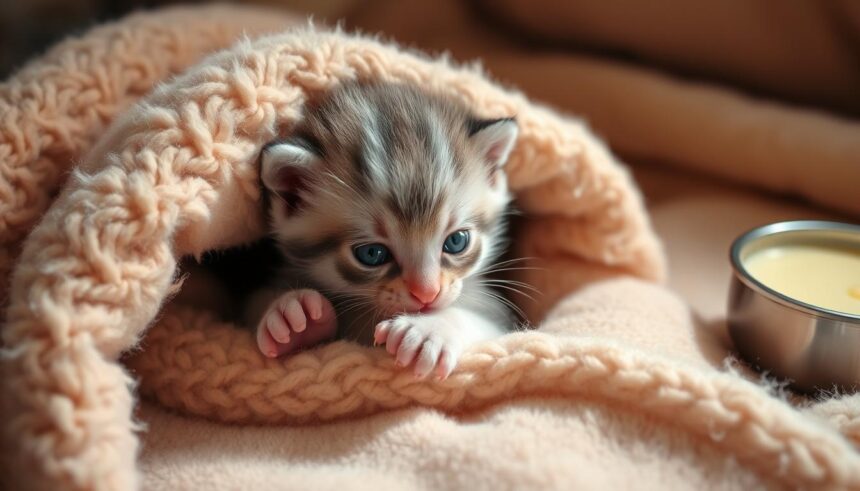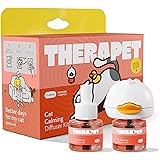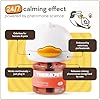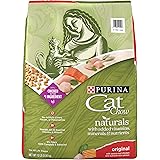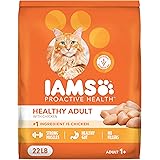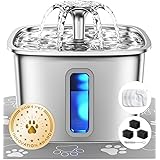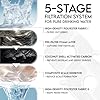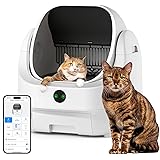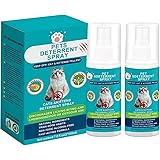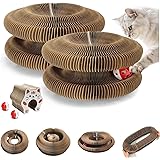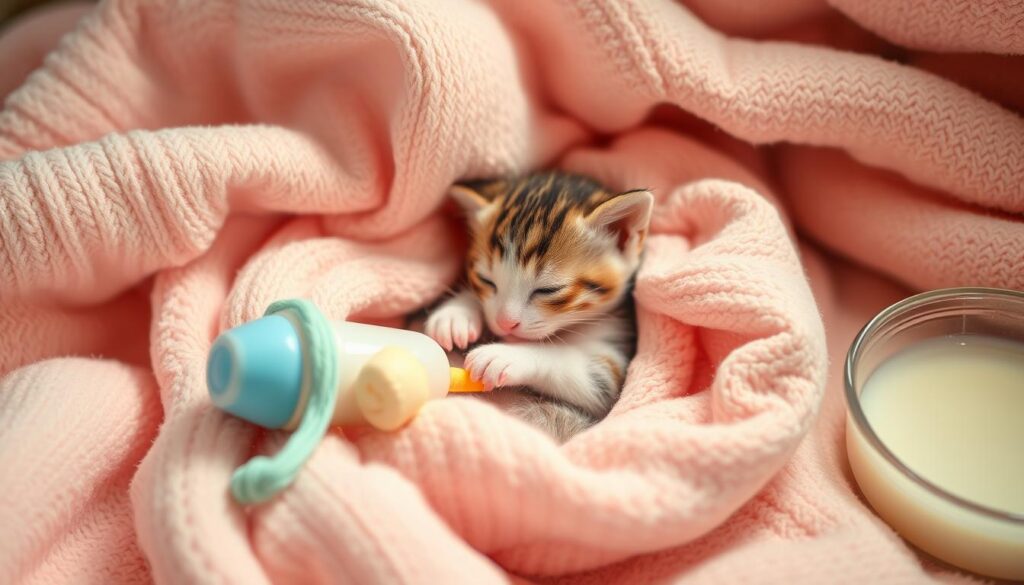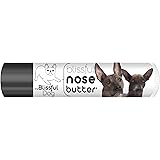What should 1 week old kittens be doing? At this stage, a newborn kitten, or young kitten, has likely doubled its birth weight to around 7-8 ounces. Its ears may start to unfold. It’s essential to understand the basics of kitten care, including feeding frequency, weight gain, and physical development. A 1 week old kitten requires proper care to ensure its health and well-being.
Understanding the needs of a 1 week old kitten is crucial for its development. A newborn kitten relies on its mother for nutrition, warmth, and protection. If the mother is not present, a young kitten requires specialized care. This includes feeding with a bottle and kitten formula every two to three hours. Proper kitten care also involves monitoring the kitten’s weight, ensuring it’s receiving enough nutrition, and keeping its environment at a comfortable temperature.
Key Takeaways
- A 1 week old kitten should have doubled its birth weight to around 7-8 ounces.
- Feeding frequency for a 1 week old kitten without a mother is every two to three hours.
- A young kitten requires a warm environment, with a temperature of around 85 degrees Fahrenheit.
- Monitoring a newborn kitten’s weight gain, and overall health is crucial for its development.
- A 1 week old kitten needs proper care, including stimulation to go to the bathroom, and a comfortable place to rest.
- Kitten food should be given to the mother cat during pregnancy and throughout nursing until the kittens are weaned.
Physical Characteristics of a 1 Week Old Kitten
A 1 week old kitten is still in the early stages of development. Its physical characteristics are distinct. The average 1 week old kitten weight is between 150-250 grams, which is a crucial indicator of its health. Understanding what does a 1 week old kitten look like can help owners identify any potential issues early on.
TherapetMD 60-Day Cat Calming Diffuser – Cat Pheromone Diffuser for Stress, Pee Spraying, Cat Fighting, Aggression, Excessive Meowing & Scratching – 60-Day Refill Included – Packaging May Vary
$33.99 (as of February 25, 2026 16:32 GMT +00:00 – More infoProduct prices and availability are accurate as of the date/time indicated and are subject to change. Any price and availability information displayed on [relevant Amazon Site(s), as applicable] at the time of purchase will apply to the purchase of this product.)Purina Cat Chow Naturals With Added Vitamins, Minerals and Nutrients Dry Cat Food, Naturals Original – 13 lb. Bag
$16.98 (as of February 25, 2026 16:32 GMT +00:00 – More infoProduct prices and availability are accurate as of the date/time indicated and are subject to change. Any price and availability information displayed on [relevant Amazon Site(s), as applicable] at the time of purchase will apply to the purchase of this product.)Majestic Pet 3 Step Portable Dog Stairs for Small Dogs to get on Bed Supports 25 lbs or Less – Dog Steps for High Bed with Machine Washable Cover – Pet Stairs for Cats Links Yellow
$51.99 (as of February 25, 2026 17:03 GMT +00:00 – More infoProduct prices and availability are accurate as of the date/time indicated and are subject to change. Any price and availability information displayed on [relevant Amazon Site(s), as applicable] at the time of purchase will apply to the purchase of this product.)Bedsure Waterproof Dog Blankets for Small Dogs – Small Cat Blanket Washable for Couch Protection, Sherpa Fleece Puppy Blanket, Soft Plush Reversible Throw Furniture Protector, 25″X35″, Grey
$10.38 (as of February 25, 2026 16:32 GMT +00:00 – More infoProduct prices and availability are accurate as of the date/time indicated and are subject to change. Any price and availability information displayed on [relevant Amazon Site(s), as applicable] at the time of purchase will apply to the purchase of this product.)Yaheetech 54in Cat Tree, Multi-Level Cat Tower with Spacious Kitten-ear Perch, 2 Cozy Caves, Scratching Posts, Climbing Ladder, 2 Plush Balls, Durable Pet House Furniture for Indoor Kittens, Dark Gray
$39.99 (as of February 25, 2026 16:32 GMT +00:00 – More infoProduct prices and availability are accurate as of the date/time indicated and are subject to change. Any price and availability information displayed on [relevant Amazon Site(s), as applicable] at the time of purchase will apply to the purchase of this product.)Amazon Echo Show 5 (newest model), Smart display, Designed for Alexa+, 2x the bass and clearer sound, Charcoal
$89.99 (as of February 26, 2026 05:55 GMT +00:00 – More infoProduct prices and availability are accurate as of the date/time indicated and are subject to change. Any price and availability information displayed on [relevant Amazon Site(s), as applicable] at the time of purchase will apply to the purchase of this product.)Purina ONE High Protein, Natural Dry Kitten Food, +Plus Healthy Kitten Formula – 7 lb. Bag
$17.97 (as of February 25, 2026 16:32 GMT +00:00 – More infoProduct prices and availability are accurate as of the date/time indicated and are subject to change. Any price and availability information displayed on [relevant Amazon Site(s), as applicable] at the time of purchase will apply to the purchase of this product.)IAMS Proactive Health Dry Cat Food, Healthy Cat Food Dry Recipe for Adults, with Chicken 22 lb. Bag
$39.98 (as of February 25, 2026 16:32 GMT +00:00 – More infoProduct prices and availability are accurate as of the date/time indicated and are subject to change. Any price and availability information displayed on [relevant Amazon Site(s), as applicable] at the time of purchase will apply to the purchase of this product.)Temptations Cat Treats Classic Crunchy and Soft Cat Treats, Tasty Chicken Flavor, 30 oz. Tub
$14.99 (as of February 25, 2026 16:32 GMT +00:00 – More infoProduct prices and availability are accurate as of the date/time indicated and are subject to change. Any price and availability information displayed on [relevant Amazon Site(s), as applicable] at the time of purchase will apply to the purchase of this product.)GORILLA GRIP 100% Waterproof Raised Edge BPA Free Silicone Pet Feeding Mat, Dog Cat Food Mats Contain Spills Protects Floors, Placemats for Cats and Dogs Water Bowl, Pets Accessories 18.5×11.5 Gray
$8.99 (as of February 25, 2026 16:32 GMT +00:00 – More infoProduct prices and availability are accurate as of the date/time indicated and are subject to change. Any price and availability information displayed on [relevant Amazon Site(s), as applicable] at the time of purchase will apply to the purchase of this product.)At this age, kittens are blind, and their eyes start to open between 9 to 14 days old. All kittens are born with blue eyes, which remain so for several weeks. Determining the 1 week old kitten gender can be challenging, but it is essential for planning their care and future health checks.
Here are some key physical development markers for a 1 week old kitten:
- Weight: 150-250 grams
- Eyes: Closed, but starting to open
- Fur: Soft and thin
- Size: Small, around 4-5 inches long
Monitoring these physical characteristics can help owners ensure their kitten is developing normally. It also helps address any concerns promptly.
Essential Development Milestones
Kitten development is amazing, with big steps taken in the first weeks. At one week, kittens start to notice their world but still sleep a lot. They find comfort in each other’s warmth. As they grow, they can move their ears and smell and taste better.
One big moment is when kittens open their eyes. This happens between 6-8 days old, and they have full vision by 2 weeks. Their early vision is blurry, but they start to move around and test their legs. By 2 weeks, they also double their birth weight, showing they’re growing well.
Knowing these milestones is key for kitten owners. It helps them see how their kitten is doing and spot any problems. By watching their kitten grow, owners can make sure they get the care they need. Kittens will start to play, use the litter box, and get better at seeing and hearing.
Some important kitten milestones include:
- Eyes starting to open at around 6-8 days old
- Ear canals fully open at around 2 weeks old
- Start exploring surroundings and testing legs at around 2 weeks old
- Double birth weight at around 2 weeks old
By knowing these milestones, owners can give their kittens the best start. This helps them become healthy and joyful adult cats.
Vital Essentials Freeze Dried Minnows Cat Treats | Single Ingredient | Premium Quality | Grain Free, Healthy Treats for Cats, 1 oz Bag
$11.59 (as of February 25, 2026 16:32 GMT +00:00 – More infoProduct prices and availability are accurate as of the date/time indicated and are subject to change. Any price and availability information displayed on [relevant Amazon Site(s), as applicable] at the time of purchase will apply to the purchase of this product.)Purina Tidy Cats Clumping Cat Litter Odor Control, 24/7 Performance Multi Cat Litter – 16 lb. Bag
$12.50 (as of February 25, 2026 16:32 GMT +00:00 – More infoProduct prices and availability are accurate as of the date/time indicated and are subject to change. Any price and availability information displayed on [relevant Amazon Site(s), as applicable] at the time of purchase will apply to the purchase of this product.)Temptations Creamy Puree Squeezable Lickable Cat Treats, Wet Cat Treats with Chicken, Salmon, and Tuna Variety Pack, 0.42 oz. Tubes, 24 Count
$13.28 (as of February 25, 2026 16:32 GMT +00:00 – More infoProduct prices and availability are accurate as of the date/time indicated and are subject to change. Any price and availability information displayed on [relevant Amazon Site(s), as applicable] at the time of purchase will apply to the purchase of this product.)Hill’s Science Diet Adult 1-6 Premium Nutrition Dry Cat Food, Chicken Recipe, 4 lb. Bag
$22.99 (as of February 25, 2026 16:32 GMT +00:00 – More infoProduct prices and availability are accurate as of the date/time indicated and are subject to change. Any price and availability information displayed on [relevant Amazon Site(s), as applicable] at the time of purchase will apply to the purchase of this product.)Sheba Perfect Portions Wet Cat Food Pate with Sustainable Salmon, Signature Seafood Entree, and Tender White Fish and Tuna Entree Variety Pack, 2.6 oz. Twin Pack Trays (24 Count, 48 Servings)
$23.38 (as of February 25, 2026 16:32 GMT +00:00 – More infoProduct prices and availability are accurate as of the date/time indicated and are subject to change. Any price and availability information displayed on [relevant Amazon Site(s), as applicable] at the time of purchase will apply to the purchase of this product.)WORLD’S BEST CAT LITTER Multiple Cat Unscented, 32-Pounds – Natural Ingredients, Quick Clumping, Flushable, 99% Dust Free & Made in USA – Long-Lasting Odor Control & Easy Scooping
$39.94 (as of February 25, 2026 17:54 GMT +00:00 – More infoProduct prices and availability are accurate as of the date/time indicated and are subject to change. Any price and availability information displayed on [relevant Amazon Site(s), as applicable] at the time of purchase will apply to the purchase of this product.)Veken Innovation Award Winner Stainless Steel Cat Water Fountain, 108oz/3.2L Automatic Pet Fountain Dog Water Dispenser with 3 Replacement Filters & Silicone Mat, Gifts for Cats, Dogs (Silver)
$26.99 (as of February 25, 2026 16:32 GMT +00:00 – More infoProduct prices and availability are accurate as of the date/time indicated and are subject to change. Any price and availability information displayed on [relevant Amazon Site(s), as applicable] at the time of purchase will apply to the purchase of this product.)Open Top Automatic Litter Box, Odor Control, Ready to Use, Self Cleaning Litter Box, Large Capacity with APP Control and Safety Sensor, Ellenpent, with Trash Bags/Waterproof Mat/Litter Mat
$219.99 (as of February 25, 2026 17:03 GMT +00:00 – More infoProduct prices and availability are accurate as of the date/time indicated and are subject to change. Any price and availability information displayed on [relevant Amazon Site(s), as applicable] at the time of purchase will apply to the purchase of this product.)hply tea Cat Deterrent Spray, Cat Scratch Deterrent Spray for Furniture Protection, Sofas, Rugs, Curtain – – for Indoor & Outdoor Cats Behavior Training Prevent Urine Marking, 7.0 fl.oz 2 Packs
(as of February 25, 2026 17:54 GMT +00:00 – More infoProduct prices and availability are accurate as of the date/time indicated and are subject to change. Any price and availability information displayed on [relevant Amazon Site(s), as applicable] at the time of purchase will apply to the purchase of this product.)CreoMorphix 2Pcs Upgraded Kitty Kurlz Twisty Paws Cat Toy, Magnetic Kitty Curls Cat Scratcher, Kitty Kurls Cat Toys for Indoor Cats with Bell Balls, Stress Relief & Furniture Protection
$19.99 (as of February 25, 2026 16:32 GMT +00:00 – More infoProduct prices and availability are accurate as of the date/time indicated and are subject to change. Any price and availability information displayed on [relevant Amazon Site(s), as applicable] at the time of purchase will apply to the purchase of this product.)Proper Feeding Guidelines for Week-Old Kittens
Feeding a 1 week old kitten is a big responsibility. They need to eat every 2 hours. The amount of food depends on their weight. A good rule of thumb is to give 2-6 ml of formula per feeding.
It’s important to use a kitten-specific formula. Feed them on their stomachs, not backs. After feeding, burping is key to prevent discomfort. Place the kitten on your shoulder or stomach and gently pat their back.
Don’t give 1 week old kittens water. Their kidneys can’t handle it. Instead, they should drink their mother’s milk or a suitable formula.
Feeding Schedule and Frequency
- Feed every 2 hours for the first week of life
- Gradually increase the time between feedings as the kitten grows
- Monitor the kitten’s weight and adjust the feeding schedule accordingly
Proper Milk Formula Selection
Choosing the right formula is crucial. It should be kitten-specific and high-quality. Always follow the manufacturer’s instructions for preparation and feeding.
| Age | Feeding Frequency | Amount per Feeding |
|---|---|---|
| 0-1 week | Every 2 hours | 2-6 ml |
| 1-2 weeks | Every 3 hours | 6-8 ml |
| 2-3 weeks | Every 4 hours | 8-10 ml |
Understanding Your 1 Week Old Kitten’s Behavior
At one week old, kittens mostly act on instinct and need to survive. They start to notice their world but still love to stay warm and close to their mom and siblings. They sleep a lot, waking up briefly to eat and play.
Many new kitten owners worry about why does my 1 week old kitten keep crying. Kittens cry to tell us they need something, like food or a clean spot. To calm them, mimic a mom cat’s touch by stroking their head and back. Also, give them a cozy, warm place to rest.
As kittens grow, their actions change. Here are some important milestones to watch for:
- Kittens who get regular handling from 15 to 40 minutes a day grow bigger brains. They become more curious, playful, and smart.
- Skills learned in the first eight weeks are crucial. If not learned, they might be lost forever.
- Most cats stay kitten-like in mind and body until they are two years old.
Knowing about 1 week old kitten behavior and kitten behavior helps you care for your kitten better. By meeting their needs, you help them become a happy, healthy cat.

- 🐱 【Multifunctional Activity Center】The cat Tree provides 3 top perches platforms and two cozy condo. Whether your kitten wants to stretch out on a spacious perch, curl up in a plush hole room, or release the urge to scratch on a sisal pole, this multifunctional cat tree tower works perfectly as a recreation paradise,which can make your fur baby's day full of fun and excitement!two toys gives them a unique way and Fun to play!
- 🐱【 Large Space Vertical】Because of its compact footprint and ability to conserve floor space, the cat tree design offers a large amount of vertical space. Every cat can have their own zone thanks to the cat jumping platform, which is another way that modern cat trees promote indoor cat peace. Maximum Load Capacity: 44 lbs. If your cat is too big for this cat tree, please buy one for tiny and medium-sized cats!
- 🐱 【Stable Construction】Our Cat Tower is made of high-quality particle board with skin friendly plushy faux-fur cover to keep your cat warm and comfortable. The cat activity tree has a wall anchor strap which provides a good double security protection. You don't have to worry that the cat tree will overturn or shake accidentally.Give your cat the best protection!ideal for average kittens and cats.
- 🐱 【Posts for Scratching Covered in Sisal 】These are scratching surfaces that are integrated into the framework. Cats love to bury their claws in sisal because it's a sturdy substance with a coarse texture. Our cat tree promotes healthy scratching habits and helps discourage cats from damaging furniture by offering dedicated spaces for them to scratch.
- 🐱 【Simple assembly】We understand that convenience is important to pet owners, which is why we made our cat tree simple to assemble in a matter of minutes. You can quickly provide your kitties a stimulating environment by following the simple setup instructions and using the available tools. Please feel free to contact us with any questions you may have about our cat tree, and we will respond to you within a day!

- Teething Fun: Ideal for kittens and cats alike, these chew toys are an essential addition to your kitty’s dental care. With natural gall fruit and rope design, the toys are perfect for teething and teeth cleaning, they combat tartar and freshen breath, making dental hygiene a fun activity for your little one!
- Infused with Catnip Aroma: The included catnip bag emits a soothing aroma that's irresistible to felines, ensuring these toys are a calming and engaging presence for indoor play. Our cat toys provide the calming, meow-inducing fun every kitten craves, along with a funny and interactive experience.
- Energetic Exercise: Promote healthy exercise and self-play with our toys' appealing textures and tassels. They’re designed to entice your kitty to bite and play aggressively without harm, offering hours of exercise and self-amusement, keeping your cat active and happy.
- Quiet Play: These soft colorful ropes provide enriching quiet playtime without bothering cat owner's sleep or life. Your kitty will love the funny snake-like shapes, enhancing their playtime with every pounce and bite.
- Safe and Organic: These chew toys, handcrafted without any metal wire and using organic cotton rope, are safe for all cats. Paired with a reusable catnip bag, they’re an essential, eco-friendly addition to your cat’s enrichment collection.

- MADE WITH WHOLESOME INGREDIENTS YOU CAN TRUST: Every Inaba product is made with yummy ingredients including farm-raised chicken and/or wild-caught tuna
- KEEP OUR FELINE HYDRATED WITHOUT ADDING CALORIES: Each delicious, creamy Churu tube contains 91% moisture and only 6 calories (a tenth of the calories of traditional dry cat treats), which makes it a healthy snack you can feel good about feeding
- FREE OF THE BAD STUFF: Your feline friend is important to us, which is why we've kept things like grains, preservatives, artificial colors and carrageenan out of our cat treats, but we added things like Vitamin E for immunity
- HAVE THEM EATING OUT OF YOUR HAND: These lickable purée meat tubes for cats were designed to be fed by hand, as an interactive way to spend time with your feline, but you can use as a wet/dry cat food topper or as a way to disguise medication
- ADD SOME VARIETY TO YOUR CAT'S LIFE: Available in eleven savory flavors, cats of all stages (kitten to senior) will be able to find a flavor they love

- FREEZE-DRIED RAW MINNOWS CAT TREAT: Vital Essentials Freeze Dried Cat Treats pack more protein than industry standard into every bite to deliver the peak vitality your dog deserves. Our natural freeze-dried raw cat treats are made from responsibly sourced premium minnows.
- BETTER PROTEIN = BETTER BENEFITS: The best freeze dried cat treats on the market use premium butcher cut raw protein to unlock the benefits of naturally occurring vitamins and minerals in raw muscle and organs, because pets deserve the energetic playtimes, healthy skin, shiny coats, strong teeth, and essential gut health that a high-protein diet delivers.
- PROUDLY AMERICAN CRAFTED: All our cat treats and food are responsibly sourced and humanely harvested to ensure the quality of our proteins. We go above industry standards to preserve flavor and ensure the highest quality of protein and nutrients in every Vital Essentials product.
- MADE WITHOUT: Cat treat additives, fillers, dyes, flavorings, artificial preservatives, grains, or rendered by-products. Vital Essentials also offers the widest variety of single-protein raw cat food and treats on the market—great for picky eaters and cats with allergies!
- RAW CAT TREATS FREEZE DRIED FOR PEAK FRESHNESS: Our protein is frozen within 45-minutes of harvesting to lock in peak nutrients, flavor, and freshness. A slow-freeze-dry ensures minimal processing, while preserving the vital nutrients that our pets deserve, the way nature intended.

- Cats Lose Their Cool: Just shake the pack, and your favorite feline will come running for their favorite cat treats
- Purr-fect Texture: Cat treats are crunchy on the outside and soft on the inside, making it the cat snack that keeps them coming back
- Under 2 Calories Per Treat: Each cat treat is under 2 calories, so these little crunchy goodies make the perfect snack or reward that can be given daily
- Trifecta of Tempting Cat Treats: Catnip Fever is a delicious cat snack with a mix of chicken, catnip, and cheese flavors your cat will love
- Value-Sized, Resealable Tub: Treat ’em again and again using the resealable tub that is perfect for keeping cat paws off when you’re not watching

- Award-Winning Product. Veken is proud to be a 2024 Category Winner of the Pet Innovation Awards, an honor given to only the most forward-thinking products within the rapidly expanding Pet industry.
- Upgraded Stainless Steel. Opt for a stronger, more hygienic version of our best selling pet fountain. Easy to clean and BPA-free, our stainless steel design offers the elevated and modern look you want with additional benefits.
- Large Capacity Water Tank. Worry less about your furry friend running out of water. Our pet fountain features a generously sized water reserve tank to help you avoid frequent refilling, ensuring your pets are healthy, hydrated, and happy.
- Advanced 5-Stage Filtration. Our upgraded system with silver, scale inhibitors, and activated carbon delivers fresh, clean water for up to 3 weeks. For optimal performance and your pet’s health, we recommend using softened or filtered water.
- LED Light Feature. Illuminate your pet’s favorite drinking spot with our optional on/off light feature. Designed for assisted visibility of water level and fountain location, our gentle light is perfect for avoiding spills and easy refilling.

- 4-in-1 Monitoring Tools: Sealed, hygienic strips for comprehensive cat wellness indicator checks.
- Simple At-Home Use: User-friendly steps with clear guidance—no professional training needed.
- Quick Readings: Obtain consistent readings at home in 10-20 minutes to stay attentive to your cat’s needs.
- Gentle and Non-Intrusive: Designed for minimal stress, using easy sample collection (feces/swabs) suitable for cats.
- Hygienic Components: Individually sealed tools and pre-measured solution for clean, safe use at home.

- 【Interactive Cat Toys】High quality aluminum alloy shell which equipped with metal clip design and three adjustment modes, only need to slide adjustment, no need to long press,in addition,Interactive cat toys mini size and easy to carry, easily put this cat toys in your pocket or bag, use it anytime and anywhere for added.
- 【7 In 1 Modes】This cat toys has 5 patterns: red dot, mice, butterfly, smile face, star. Scoll the black gear on the head to change to 3 different modes: red, purple, white. You can use the purple to check couterfeit currency and check your pets. White mode can be used for emergency lighting. The red mode can be used to play with your cat or for PowerPoint presentation.
- 【Indoor Play】Excellent interactive cat toys can not only bring endless fun, but also exercise the pet's body and agility.Can provide exercise and endless fun,This exercise chaser toy can satisfy the curiosity and playfulness of your cat.
- 【USB Direct Charging】Unplug the back cover and connect the charging head to charge it. It does not need dry battery and is environmentally friendly.
- 【Gifts for Your Pets】With this cat toys, your pet will not feel lonely, but also can enhance the relationship between you and your pet, It's the best gift for pets.

- Unique and Funny Design: These cute plush cat toys are designed to look like knives, creating a hilarious contrast with your kitty's playful nature. Perfect for indoor play, they will bring endless amusement to both you and your cat.
- Multiple Attractions: Filled with organic catnip and silvervine, these toys make cats excited and playful. The crinkle paper inside adds an extra layer of fun, making engaging sounds that entice your kitty to play and exercise.
- High-Quality and Safe: Made from durable materials, these toys are designed to withstand biting and clawing. The high-quality catnip is sun-dried and packaged in a non-woven bag, ensuring a long-lasting, refreshing scent that keeps your cat coming back for more.
- Interactive and Engaging: These toys provide great enrichment for your cat's life, promoting exercise and interactive play. The crinkle sound and realistic design keep your kitty engaged and stimulated, preventing boredom and promoting healthy activity.
- Calming and Cuddly: Perfect for self-play and calming your cat, these plush toys are soft and safe for your kitty to cuddle and bite. The combination of catnip and silvervine provides a soothing effect, making them an essential addition to your cat's toy collection.

- Friskies Prime Filets wet cat food made with real meat, poultry or seafood. Savory sauce or gravy for cats adds flavor and moisture
- Shredded soft cat food chunks offer a tempting texture. Provides 100 percent complete and balanced nutrition for adult cats
- Multi-can Friskies canned cat food variety pack makes it easy to stock your pantry. Contains essential vitamins and minerals in every serving
- Enticing, moist cat food aroma tempts her to her dish. Checked for quality and safety to provide added peace of mind
- Canned cat food variety pack formulated to meet or exceed industry standards for cat food
Every kitten is unique, so what works for one might not work for another. If you’re worried about your kitten’s behavior or growth, talk to a vet or animal behavior expert. They can give you advice tailored to your kitten.
| Age | Behavioral Milestone |
|---|---|
| 1-2 weeks | Kittens begin to develop motor skills and start to interact with littermates |
| 3-4 weeks | Kittens start to explore their surroundings and develop problem-solving skills |
| 5-6 weeks | Kittens begin to develop social skills and learn to interact with humans |
Health Monitoring and Assessment
Keeping an eye on a 1 week old kitten’s health is key for its survival and happiness. Dehydration is a big risk, shown by signs like being limp, unresponsive, and having sunken eyes. It’s vital to know these signs and when to get vet help.
A kitten sneezing at 1 week old might just be a normal reflex. But, if it keeps sneezing or shows other signs like discharge or tiredness, see a vet. Regular vet visits can spot problems early, helping the kitten get the care it needs.
Some important health signs to watch in a 1 week old kitten include:
- Body temperature: A normal range for newborn kittens is between 35.5°C and 37.2°C.
- Respiratory rate: A healthy rate for kittens is between 20-40 breaths per minute.
- Heart rate: A normal heart rate for newborn kittens is around 230 beats per minute.
Knowing these health signs and watching the kitten’s behavior helps owners keep their kitten healthy. If you have any worries, always talk to a vet for expert advice and care.
| Health Indicator | Normal Range |
|---|---|
| Body Temperature | 35.5°C – 37.2°C |
| Respiratory Rate | 20-40 breaths per minute |
| Heart Rate | 230 beats per minute |
Temperature Regulation and Environment
Keeping the right temperature is key in kitten care, especially for newborns. These tiny kittens can’t keep themselves warm until they’re about three weeks old. They get cold quickly, which can be dangerous. It’s important to keep them warm and watch for signs of coldness, like being very still and feeling cool to the touch.
For caring for kittens, knowing the right temperature is vital. Newborn kittens need a warm spot, between 80-90°F. You can use an electric heating pad or a microwavable one, like the SnuggleSafe Microwavable Heatpad. The whole area should be about 90°F when the mom cat isn’t there. This can be lowered to 75°F by the time the kittens are a month old.
Creating a Safe Nesting Area
Creating a warm and cozy spot is crucial for the kittens. Use a towel or blanket as bedding and place it near a heating pad. Make sure the kittens have a warm, safe spot for sleeping, eating, and playing.
For how to take care of 1 week old kitten, watching their temperature closely is essential. Check their temperature often and adjust the heat or environment as needed. This keeps the kittens comfortable and safe.
Proper Handling and Socialization
When it comes to kitten care, handling and socialization are key. They help kittens grow into healthy, well-adjusted cats. In the first few weeks, kittens are very fragile. They need gentle care to avoid injury or stress.
Handling kittens often is important. It helps them feel comfortable around people. This makes it easier for them to adjust to new homes. But, it’s also important to let them rest and get maternal care to avoid too much stress.
Some key things to remember for handling and socializing kittens include:
- Start with short handling sessions and gradually increase the duration as the kittens grow older
- Ensure clean hands and a gentle touch to prevent stress and injury
- Provide a safe and comfortable environment for kittens to explore and interact with their surroundings
By following these guidelines, you can help your kittens grow into confident, loving cats. Remember, caring for kittens needs patience, dedication, and a gentle touch. This ensures they get the best start in life.
| Age | Socialization Recommendations |
|---|---|
| 2-7 weeks | Handle kittens often, introduce to new people and environments |
| 4 weeks | Intensify socialization efforts, expose to various textures and noises |
| 5 weeks | Kittens should meet at least 100 people during primary socialization period |
Orphaned Kitten Care Essentials
Caring for a 1 week old kitten without its mother is a big job. It needs a lot of dedication and attention to detail. The question of can a 1 week old kitten survive without its mother is important. The answer depends on how well the kitten is cared for.
Proper 1 week old kitten care means knowing the kitten’s special needs. These include needing to eat often and stay warm.
When thinking about how to take care of 1 week old kitten, keeping it warm is key. Newborn kittens can’t keep themselves warm until they’re about 3 weeks old. The best temperature for them is between 35-38°C. You can use a heating pad to keep them warm.
It’s also important to check on the kitten every 2 to 3 hours. This helps prevent problems like hypothermia, hypoglycemia, and dehydration.
Survival Rates and Statistics
The chances of an orphaned kitten surviving depend on the care it gets and its health. With the right care, including a special milk replacer and a warm place, many kittens can do well. But, it’s important to know about risks like the 3-H Syndrome and how to avoid them.
Special Care Requirements
Taking care of an orphaned 1 week old kitten is a big job. It needs a lot of time and effort. This includes feeding it every 2-3 hours and keeping it warm and safe.
As the kitten grows, you can start to adjust its feeding schedule. By about 3 weeks old, it can start eating watered-down meat-based kitten food. With the right care and patience, many orphaned kittens can grow up to be healthy and happy cats.
Cleaning and Hygiene Protocols
Cleaning a 1 week old kitten needs to be gentle. Kittens this age are still growing and can get cold easily. So, it’s best not to put them in water. Instead, use a warm, damp cloth to clean them after they eat.
This keeps them clean and warm without risking hypothermia. Start by cleaning only the parts that need it, like the face, paws, and bottom. Dry them well with a towel and gently warm them with a hair dryer on low.
Also, check for poop and clean the area to avoid infections. If a kitten isn’t pooping, it could be a health issue. So, watch their bowel movements closely and see a vet if you’re worried.
- Use a warm, damp washcloth to clean the kitten’s face, paws, and bottom
- Dry the kitten thoroughly with a towel and use a hair dryer on a low setting to prevent chilling
- Check for 1 week old kitten poop and clean the area to prevent infection
- Monitor the kitten’s bowel movements and consult a veterinarian if you have any concerns
By following these tips, you can keep your kitten healthy and happy. Always put their comfort and safety first. If you have any questions or concerns, don’t hesitate to ask a vet.
Common Health Issues and Solutions
It’s important to know about health problems in 1 week old kittens. Sneezing can be a sign of upper respiratory infections. If not treated, these infections can cause pneumonia. Sadly, some kittens may die suddenly due to health issues.
Newborn kittens need constant care because their immune system is still growing. They are more likely to get sick, like fading kitten syndrome. To keep them healthy, make sure the mom cat gets good prenatal care. Also, the kittens should get colostrum within 16 to 24 hours after birth.
Some common health issues in 1 week old kittens include:
- Upper respiratory infections
- Digestive issues
- Parasites, such as roundworms and hookworms
- Flea and ear mite infestations
Watching the kittens closely and seeing a vet if they seem sick is key.
Prevention is important. Regular vet visits can catch health problems early. Keeping their area clean and feeding them well also helps their health.
| Health Issue | Symptoms | Treatment |
|---|---|---|
| Upper Respiratory Infection | Sneezing, runny eyes, lethargy | Antibiotics, supportive care |
| Fading Kitten Syndrome | Failure to thrive, lethargy, weight loss | Identify and treat underlying cause, supportive care |
Knowing about these health issues and preventing them can help your 1 week old kitten stay healthy.
Mother Cat and Kitten Dynamics
At one week old, kittens rely fully on their mother for everything. She nurses, grooms, and keeps them warm. She also helps them go to the bathroom and keeps them clean.
Understanding caring for kittens is key. They are still growing and need constant attention. Kitten care means watching their weight, making sure they nurse well, and keeping them warm and safe. For a newborn kitten, the first week is critical, and their mother’s care is essential.
Signs of healthy kittens at one week include:
- They sleep a lot but snuggle together for warmth.
- They start to notice their surroundings but stay close to their mother.
- They nurse often and gain weight.
Knowing how a mother cat and her kittens interact helps in giving the best kitten care. This ensures they grow into healthy, joyful cats.
| Age | Developmental Milestone |
|---|---|
| 1 week | Kittens are completely dependent on their mother, nursing, and sleeping most of the time. |
| 2 weeks | Kittens start to become more aware of their surroundings, and their eyes begin to open. |
| 3 weeks | Kittens start walking, and their motor skills and ability to regulate body temperature begin to develop. |
Emergency Care Guidelines
When it comes to 1 week old kitten care, being ready for emergencies is key. The first few weeks are the most important for a kitten’s life. Knowing how to care for a 1 week old kitten can be a lifesaver.
Dehydration and hypothermia are big dangers for newborn kittens. Signs of dehydration include being limp, unresponsive, having sunken eyes, and being very tired.
If a 1 week old kitten dies suddenly, it might be due to health problems or not getting the right care. It’s crucial to know the warning signs and how to give basic first aid. This includes keeping the kitten warm, giving it water, and making it comfortable while getting vet help fast.
Critical Situations
Critical situations that need emergency care include severe dehydration, trouble breathing, and hypothermia. It’s important to stay calm and follow basic first aid steps. This might mean warming the kitten, giving it fluids, and using oxygen if needed.
First Aid Basics
First aid basics for 1 week old kittens include:
- Providing a warm and safe place
- Hydrating the kitten with the right formula
- Using oxygen if the kitten has trouble breathing
- Getting vet help right away if the kitten looks sick or distressed
Being ready and knowing how to act in emergencies can help your 1 week old kitten a lot. Remember, getting vet help fast is key in emergencies. Knowing how to care for a 1 week old kitten can also help avoid emergencies.
| Emergency Situation | First Aid Procedure |
|---|---|
| Dehydration | Provide fluids, warm the kitten gently |
| Hypothermia | Warm the kitten gently, provide a safe environment |
| Respiratory Distress | Administer oxygen, seek immediate veterinary attention |
Growth and Development Timeline
Your 1-week-old kitten will grow fast, showing big changes in size, looks, and behavior. By 2 weeks, they double their birth weight, reaching 6-8 ounces. At 3 weeks, they might start purring and checking out their world. By 4 weeks, they can weigh 1.4 to 2.6 pounds.
Between 5-8 weeks, kittens grow fast, getting heavier and their eyes changing color. Around 6 weeks, they need 4 small meals a day. At 8 weeks, they get a full set of permanent teeth and can be microchipped. Weaning starts around 5 weeks and finishes by 12 weeks, when they eat wet or dry kitten food.
It’s important to watch your kitten’s kitten development and kitten milestones. Knowing what to expect at 2 week old kitten, 3 week old kitten, and 4 week old kitten stages helps you meet their needs. This way, you can give them the best care as they grow up.


